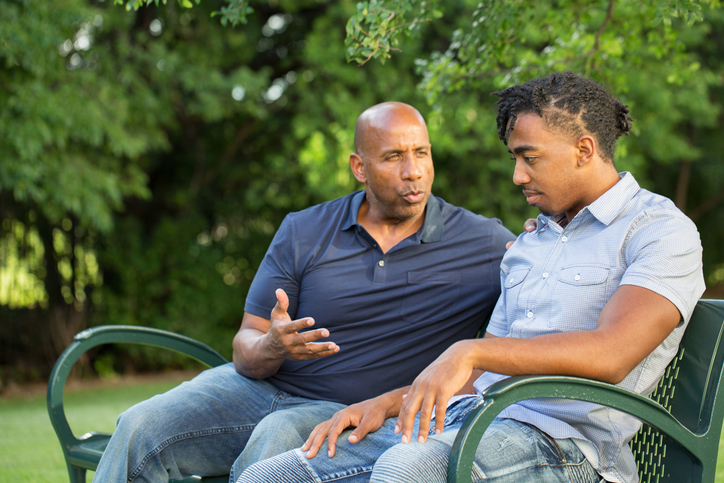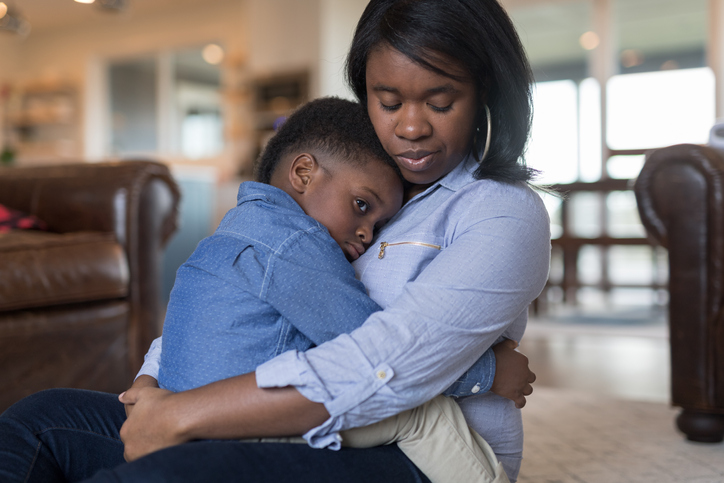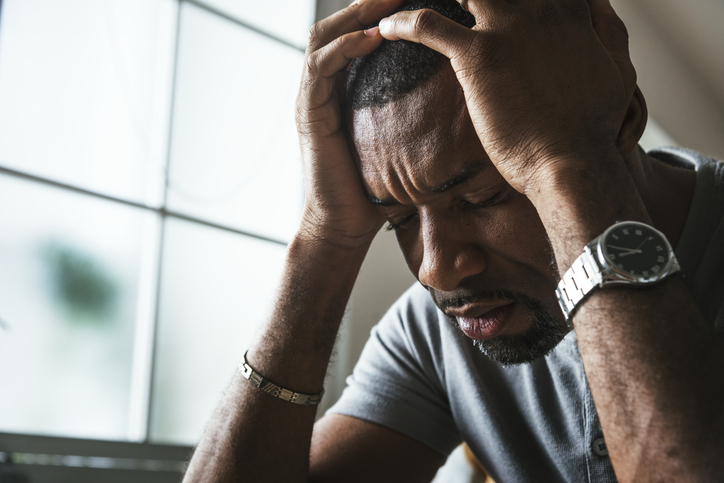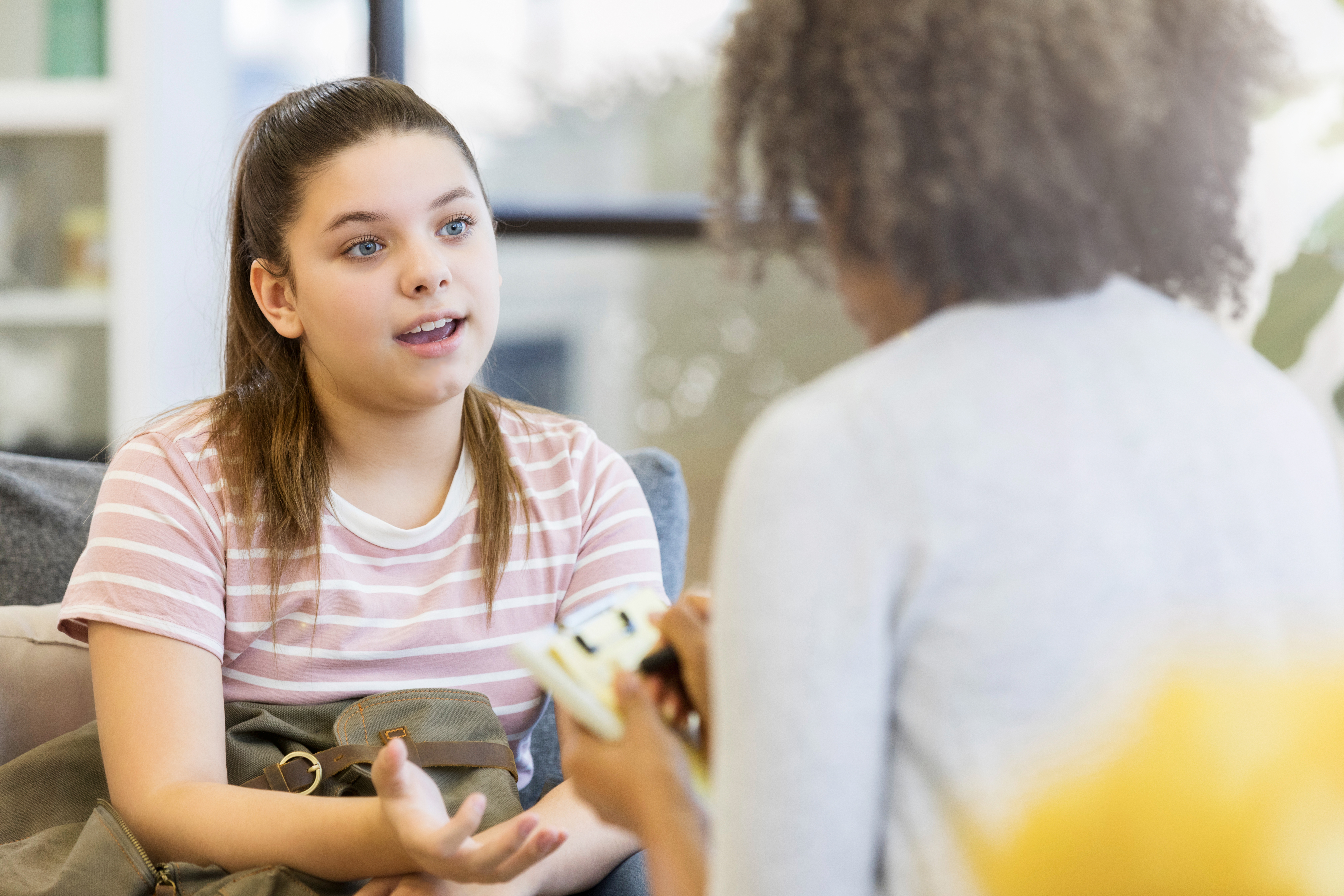Editor's Note Regarding This Special Edition
The Gravity of Black Grief
- I have never been pregnant, felt the movement of arms and legs inside of me, and then felt the terrifying absence of movement.
- I have never had to tell my children that their mother is dead.
- Never have I had military personnel on my doorstep asking to come in to deliver bad news.
- I have never felt the horror and loss of sexual assault.
- I have not experienced the loss of family or friends when I 'came out.'
- A physician has never told me that my death is in a matter of months.
I do get some things. I walked with my mom to the end of her cancer journey. I was there when the breathing tube was taken out of my father and he breathed no more. I rocked our baby, only as big as my hand, until his heart stopped beating. I saw the news report with the body bag of a family member being carried from the river. Watched too many children die.
I get things that happened to me. But really, that’s about it. I try to understand other things. Listen and watch and learn. Start with how I would feel in another person’s situation and move to how I would feel if I was that person—with their history, personality, and perspective—in that situation. I can get closer, but I’m not that person. I don’t know what it’s like to be them and how this experience is for them. I get glimpses and hints, and sometimes if I listen hard with head and heart, I get closer. Nevertheless, there will always be a gap despite all efforts to the contrary, and it’s best that I recognize that. In the end and in important ways, I just don’t fully get it.
There’s another whole category of loss and grief that I just don’t get. The grief of a Black person in America. And fellow white person, neither do you.
I look more like the officer with the knee on George Floyd’s neck than I look like George Floyd. I look more like the father and son who stalked and killed Ahmaud Arbery than I look like Ahmaud. And Breonna Taylor looks more like someone else’s daughter than she does my own. Does that mean I’m not distressed, that I’m not angry and heartbroken, that I don’t think something has to change? No, it doesn’t mean that. But it does mean that whatever I feel about these tragic deaths is just the proverbial “tip of the iceberg” compared to Black mothers and fathers, Black sons and daughters, Black sisters and brothers. They can see and feel themselves more clearly under the knee, running from the pickup, and in one’s own bed than I can see and feel. And to these names there are dozens of others in the news in recent years and hundreds, thousands more stories of mistreatment, abuse, and death that I will never know or feel. I haven’t experienced these historic and present traumas, and I haven’t been exposed to the daily threats and fears, skepticisms, microaggressions, and indignities of being Black in America. Clearly, obviously, I don’t get it. How could I?
But fellow white people, just because it’s impossible to “get” the experience of being anything but white, we are not off the hook. When we don’t get it, we need to listen to those who do. Who is the expert of a loss and its grief? The grieving person, of course. Whose expertise is needed for what is appropriate support and prevention of more loss and suffering? The people who have experienced and continue to experience losses. Not interested in preventing more loss and suffering? Then it’s a shock that you have read this far and there is little else to offer you. But most of us—all colors, varieties, and shapes of us—never want to see again what has been represented in the deaths of George Floyd, Ahmaud Arbery, and Breonna Taylor. No more “I can’t breathe.” No more it’s not safe to walk or run in the neighborhood. No more death breaking down the door. All tragically and ridiculously related to the darkness of one’s skin.
Grief support people, there is a whole world of grief and loss in the experiences of Black people. For many, if not most, of us, we do not get it. A major reason we don’t come closer to getting it is because we haven’t tried hard enough. For too long there have been blinders on our eyes, cotton in our ears, gates around our hearts. It’s taken a long time and too many deaths, but more of us are saying, “It’s got to change, and it’s got to change now.” And that delayed awakening is a heartbreaking and welcome thing.
I don’t fully get it. We white people don’t fully get it. But increasingly, we get it enough. Enough to say, “Enough.” Enough to say, “Black Grief Matters.” “Black Life Matters.” Enough to make a difference starting today.

Greg Adams, LCSW, ACSW, FT
Program Coordinator
Center for Good Mourning
[email protected]






